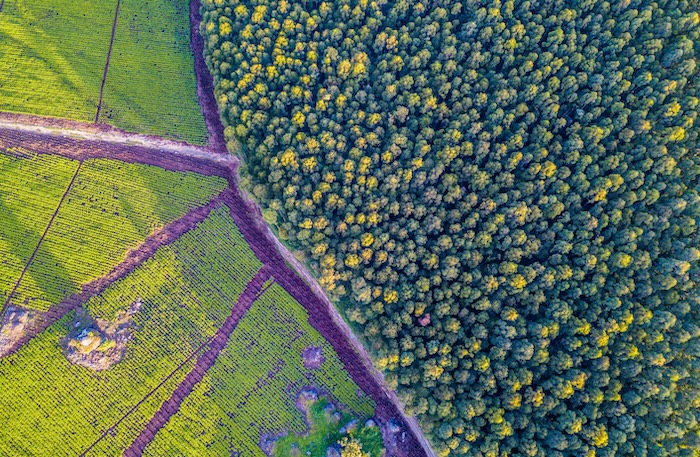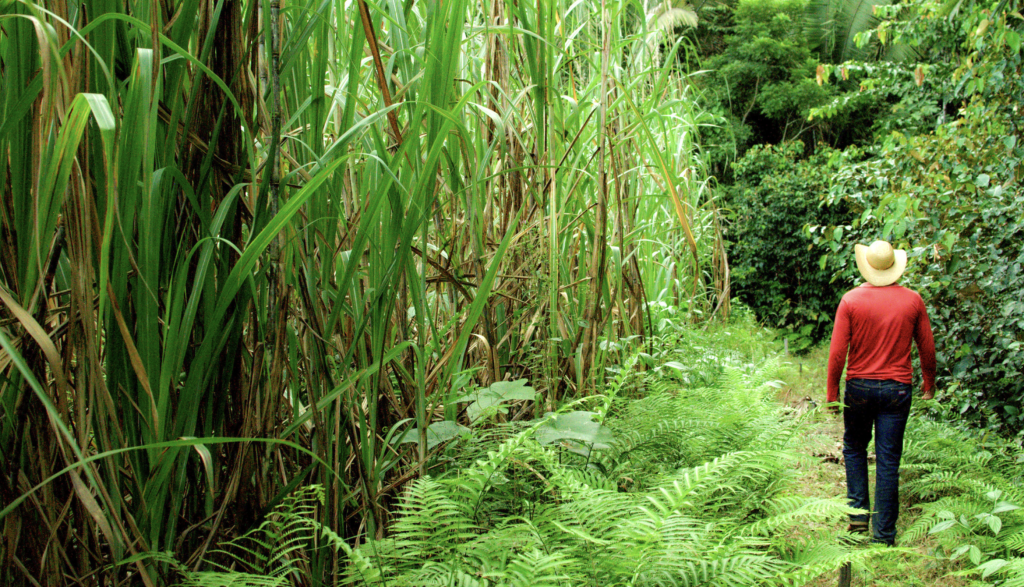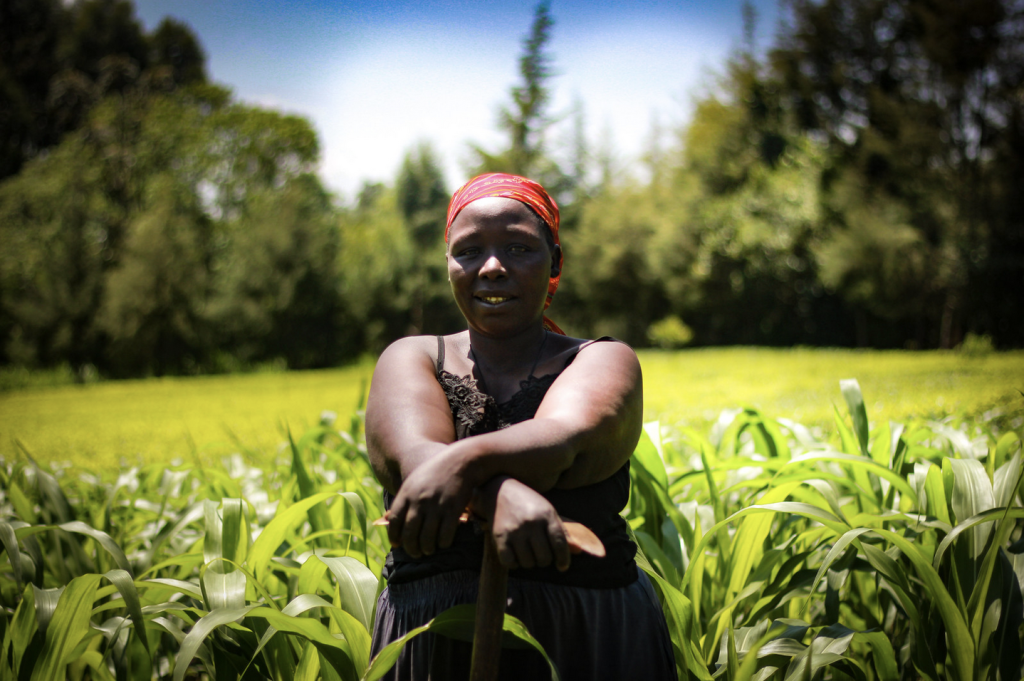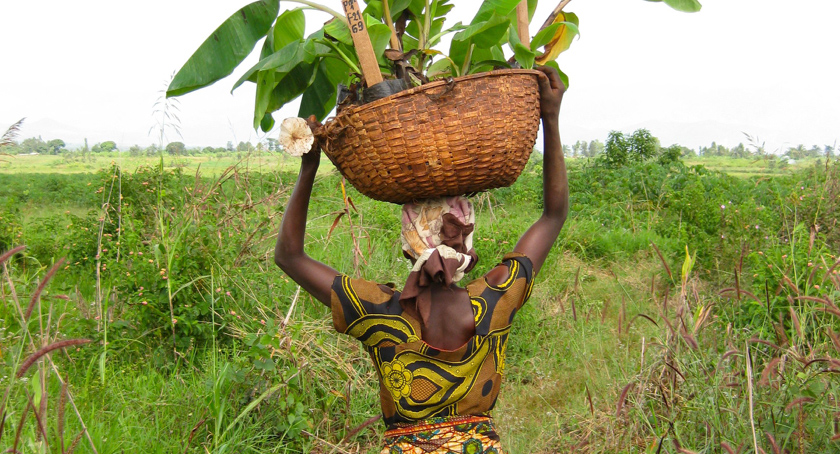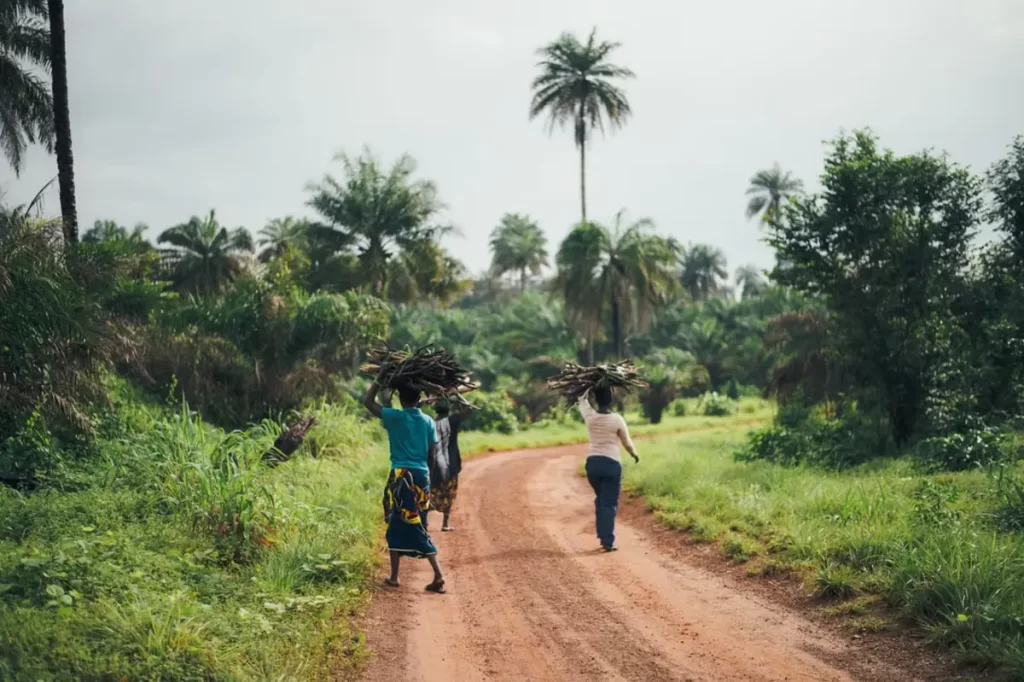Increasing diffusion and impact of the vegetable-integrated push-pull technology (VIPPT) in eastern Africa from a ‘One Health’ perspective
The overall goal of the project is to contribute to improved well-being, resilience, human nutrition and incomes of smallholder farmers in East Africa through scaling of VIPPT in diverse agro-ecosystems under a One Health approach.
The project responds to pervasive challenges of food and nutritional insecurity, and low incomes among rural smallholder farmers. Agriculture remains their key source of livelihoods. Their agricultural productivity is low because of crop pests and diseases, environmental and soil degradation, high input costs and lack of knowledge about improved farming practices. Further degradation of soil is caused by poor farming practices and variable climatic conditions. Moreover, indiscriminate pesticide use on crops poses serious health risks.
The push-pull technology (PPT) is an environmentally benign farming method that addresses these constraints by exploiting on-farm biodiversity for key ecosystem services that foster human, animal, environmental and plant health.
The first phase of VIPPT successfully integrated vegetables and legumes within PPT systems to help improve farmers’ calorific and nutritional needs and improve their incomes. The vegetable-integrated push-pull technology (VIPPT) was demonstrated to effectively suppress cereal and vegetable pests. Moreover, higher parasitoid attraction to desmodium volatiles reinforces previous discoveries of enhanced defense in the PPTs against insect pests through a stimulo-deterrent tactic, mediated through companion cropping.
Previous studies also demonstrated PPT’s role in improving soil health through natural fixation of nitrogen – enhancing phosphorus bioavailability – accumulation of soil organic carbon, increased soil organic matter and microbiota, and the enhancement capacity for plant defence against crop pests and diseases.
Funded by the Biovision Foundation, and implemented by icipe’s Push-Pull, Plant health, and Human health teams as well as the Alliance of Bioversity and CIAT’s Multifunctional landscapes and Food environment and consumer behaviour teams, the multi-disciplinary research team focuses on gaining a deeper understanding of VIPPT’s potential contribution to smallholder farmers’ holistic wellbeing in this second phase of VIPPT (2023-2025).
Project scope and aim
1). Understanding the effect of co-creation of engagement approaches – improved understanding of how to:
- facilitate more targeted knowledge exchange, behaviour change communication and information diffusion in the context of an asset-based and agency-focused co-creation process
- adapt and optimize the VIPPT technology in response to varying farmer contexts
- support ownership, agency and sustainable adoption of VIPPT
2). Understanding the environmental and agronomic performance – improved understanding of:
- ecosystem services within the nexus of soil-plant-pest interactions
- VIPPT’s efficacy against crop pests and diseases
- VIPPT’s effect on crop productivity of farmer-desired options
3). Understanding the role of nutrition sensitisation – improved understanding of:
- knowledge, attitudes and practices towards nutrition-sensitive and health-seeking behaviour as farm households gain knowledge on nutrition and food values
- community capacity to benefit from VIPPT intensification and enhanced productivity.
The project is also co-constructing a multi-stakeholder push-pull community of practice.
Modality
The project employs a mixed-methods approach that combines qualitative and quantitative research contextualized in a participatory action research process that fosters the co-design of both research and implementation.
It builds on previous work in the project area, including CIFOR-ICRAF’s Biovision-funded ABCD in Regreening project, as well as icipe’s Biovision-funded push-pull work in western Kenya.
Timeframe
Three years in total, from 2023 to 2025
Key members and partners
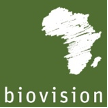


Related resources
Location
Homa Bay County, western Kenya; Morogoro, Tanzania; western Kenya
Key contacts
- Amanuel Tamiru (icipe), Project Lead: atamiru@icipe.org
- Jimmy Pittchar (icipe): jpittchar@icipe.org
- Lisa Fuchs (Alliance Bioversity-CIAT): L.Fuchs@cgiar.org
- Celine Termote (Alliance Bioversity-CIAT): C.Termote@cgiar.org
Added project value to Agroecology TPP
This project specifically focuses on analysing the holistic wellbeing benefits of a well-reputed and further improved integrated pest management technology, while considering modalities to sustainably scale their adoption. Applying a one health perspective, the team considers agronomic, environmental, nutritional, and broader agroecology aspects in its analyses.
The project also exemplifies how to structure and foster pluri- and transdisciplinary research within and between different organisations.
Embedded in the research is the critical reflection and evidencing on how external actors can meaningfully interact with communities, including by designing and implementing co-design modules to define the specific innovative practices tested, by prioritising farmer-centred participatory monitoring of locally defined priority indicators of on-farm experiments alongside external scientific monitoring, by giving back and sharing data that has been collected in suitable and accessible formats to stimulate discussion, co-create knowledge, foster a sense of agency, and inform evidence-based action.
The community of practice on push-pull can meaningfully engage and integrate with the Agroecology TPP CoP.
Added value to the organisation running the project
The Agroecology TPP brings together different researchers and projects with whom the project team can meaningfully interact, specifically in the context of:
- Engagement approaches that foster co-creation and sustainable adoption of context-specific innovations
- Integrated and holistic performance assessments
- Locally adapted and nutrition-sensitive integrated pest management technologies
- Setting up and facilitating vibrant communities of practice

